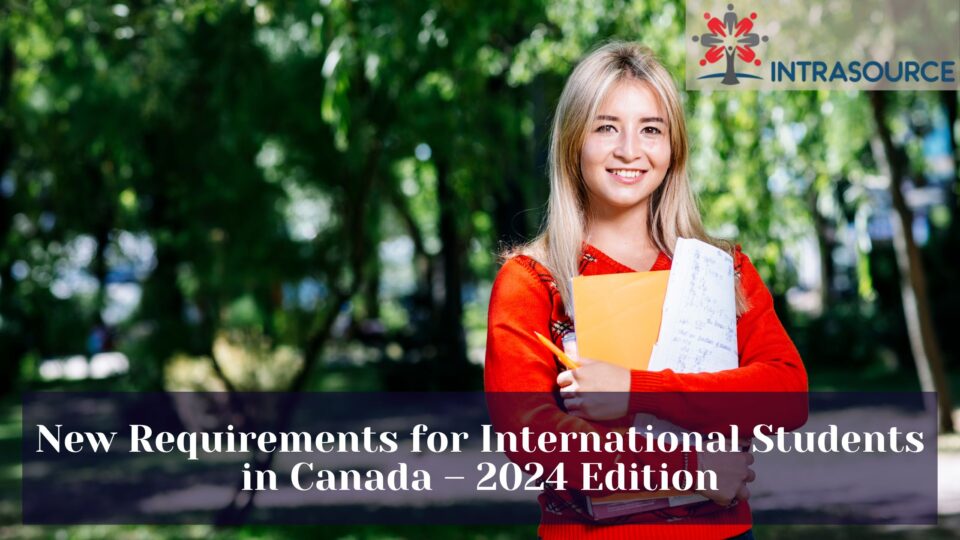Preparing to study abroad in Canada is an exciting adventure, but it comes with its fair share of responsibilities. As of 2024, there are significant changes to the rules governing international students that you need to be aware of. These changes aim to enhance the quality of your educational and cultural experiences in Canada. In this article, we’ll guide you through the new regulations so you can set yourself up for success.
Increased Cost of Living Expenses
One of the crucial aspects of preparing for your study period in Canada is budgeting for living expenses. Beginning January 1, 2024, international students will need to show proof of having access to at least $20,635 for living expenses, in addition to tuition and travel costs for their first year. If you plan on bringing family members, you’ll also need to account for higher living costs. The adjustment from the early 2000s figure reflects an aim to reduce financial strain and help students meet their basic needs.
Navigating the New Cap on International Students Visas
Canada has introduced a new cap that limits the number of international student visas issued each year. The total number has been reduced by approximately 35%, meaning only 360,000 new study permits will be granted out of a maximum of 606,250 in 2024. Before embarking on the application process, make sure you’re aware of these restrictions and plan accordingly.
Exemptions from Study Permit Cap:
– Extensions from within Canada
– Primary or secondary school level
– Master’s or doctorate level programs
Provincial Attestation Letter (PAL): A New Prerequisite
From January 22, 2024, onward at 8:30 a.m. EST (Toronto time), new study permit applicants must provide a Provincial Attestation Letter (PAL) from the relevant Canadian province or territory. This is a new prerequisite reflecting a commitment to a more streamline documentation process. Details on acquiring a PAL will become clearer as provinces and territories finalize their procedures by March 31, 2024.
PAL Exemptions:
– Preschool, primary school or secondary school applicants
– Master’s degree or Ph.D. program applicants
– Current students applying for study permit extensions within Canada
These updates to Canadian study permits represent an ongoing commitment to maintaining a high-quality educational environment tailored to international needs and realities. As always, staying informed and preparing accordingly is crucial for a smooth transition into your Canadian academic adventure.
Navigating Changes in Spousal Open Work Permit Eligibility
Understanding the New Restrictions
In a significant policy update, eligibility criteria for obtaining a spousal open work permit in Canada have undergone changes. As the policy stands, these work permits will soon be exclusively available to spouses of international students who are enrolled in master’s and doctoral degree programs. The decision marks a departure from previous rules that allowed spouses of students at various academic levels to apply.
Who Is Eligible Now?
Eligibility for an open work permit is now confined to spouses and common-law partners of students pursuing graduate (master’s and doctorate) and professional degrees. It’s important for applicants to note that those needing an extension of their current permit will continue to be eligible once the new rules come into effect.
Impact on Spouses of Non-Graduate International Students
The policy change brings a major impact on families of international students beyond the graduate level. Specifically, spouses and common-law partners of students in undergraduate and college programs are set to lose eligibility for an open work permit. This restriction holds, except in cases where individuals already possess an open work permit under this category.
Adjustments to Post-Graduation Work Permit (PGWP) Terms
Extended PGWP Duration for Master’s Graduates
Commencing February 15, 2024, post-graduation work permit conditions will embrace a positive shift for master’s degree holders. Graduates who successfully complete their studies in under two years and meet other PGWP conditions will be rewarded with the option of a longer three-year work permit.
Qualifying for the Extended PGWP
To qualify for this extended three-year PGWP, graduates must have completed at least a two-year program at PGWP-approved institutions or have earned a master’s degree in less than two years’ time.
Maintaining Eligibility Through Current Enrollments
A significant deadline looms for students considering programs under curriculum licensing agreements. Starting September 1, 2024, such study programs will no longer lead to eligibility for a post-graduate employment permit upon graduation.
Implications for International Students at Public-Private Partnership Colleges
International students currently studying within public-private partnership college programs are encouraged to meet other program criteria as they will remain entitled to post-graduate work permits. However, prospective students contemplating enrollment in such programs should stay informed that new enrollees post-deadline will be ineligible for a PGWP post-graduation.


